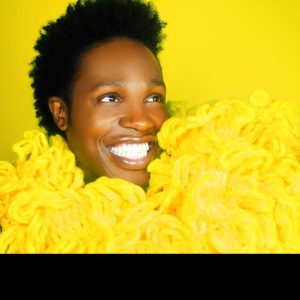Words by Souleo | Images by Ashley Walker for Steed Media Service
The piercing gaze. The confident and suave gait. The magnetic aura of a true bon vivant. You may think this is the description of James Bond, but it is actually an introduction to the effortless charms of actor Laz Alonso. The Washington, D.C., native’s powerful essence is reminiscent of legends, such as Sidney Poitier, who commanded respect, adoration and your undivided attention.
Alonso promises to keep all eyes on him in his new film, Jumping the Broom. He plays Jason Taylor, a savvy and successful businessman from Brooklyn who’s about to marry a woman from a wealthy background played by Paula Patton. The movie, which opens on Friday, May 6, addresses the socioeconomic divide within the black community as two families from opposite ends of the spectrum clash during a weekend wedding in Martha’s Vineyard. The supporting cast includes Angela Bassett, Loretta Devine and Mike Epps.
Not only is Alonso co-starring in a major motion picture, but he can also be found on the new A&E TV show, “Breakout Kings,” about U.S. marshals and a group of convicts who unite to catch fugitives on the run. From his roles in the science fiction classic, Avatar, to Spike Lee’s Miracle at St. Anna, Alonso has consistently diversified his body of work.
However, such Hollywood success is only a hint of Alonso’s full talents and credentials. After graduating from Howard University with a bachelor’s in business administration, he had a stint on Wall Street at an investment banking firm before he decided to become an entrepreneur. Alonso and his two partners launched their own marketing firm, and it was while running his business that he honed his craft as an actor. The investment in his passion paid off in 2009 when he was selected as one of Variety’s “Top Ten Actors to Watch.”
Needless to say, rolling out has been watching him from the beginning, and we spoke with him about his new challenging role, learning to value his own point of view, why he protects his privacy, his shy side that prevents him from approaching women, and how Munson Steed taught him the art of believing in oneself.
You’re mostly known for action roles, so was it difficult landing this romantic comedy part?
It’s funny because agents want to send your reel of all you’ve done before and avoid the audition if possible. But my reel has no romantic comedies on there. I am either shooting up, being an alien, killing Vin Diesel or fighting Germans in World War II. The feedback was, “Can he be vulnerable and can we see him falling in love?” I had to then go in the room and win them over.
What was the experience like of having Paula Patton as your co-star?
I’ve been admiring Paula’s work since forever, and I’ve watched everything she’s been in. I know this sounds rehearsed but I told her that I admire her work so much. Having worked with her now, I saw someone completely committed to the work. No disrespect to other actresses, but I was so happy she was chosen to play Sabrina and that I got my first romantic comedy [experience] from someone I respect.
In this movie, you are torn between worlds. You have your friends telling you one thing and your family saying another. Personally, have you had to deal with the pressure of other people’s opinions of your life?
I have friends from D.C. and my Howard friends and Wall Street friends. Now, I have my Hollywood entertainment friends. Plus, my character’s mother was a loud voice in his head and, coming from a single-parent home, I have a loud [mother], too. She’s louder than Loretta Devine and in two languages. So, there is a balancing act because you can have the same situation, and these groups give you different ways to respond. One thing the film taught me is that, at a certain point, you have to stand up for yourself and make your own decisions. You have to have that to make love last and face anyone in your life to put love first.
Speaking of love, are you currently dating?
Your boy is single. However, I have a strict policy about my personal life. You can’t let people into certain things in your life. Otherwise, you can’t get them out. They didn’t burst in. You let them in. So, when it’s time to kick them out, and they don’t go, it’s on you.
Is it harder to date when you’re famous?
It is because you have to work harder in keeping things away from the public’s consumption. People who love and support you will do so no matter who you date, but people who don’t love and support you are the ones who will do whatever it takes to end that relationship for whatever reason. I’m not trying to give those who don’t support me more ammunition to shoot me down. They have to work hard to shoot me down.
Some men are nervous about approaching women but don’t admit it. Are you one of those men?
It depends on the setting. I won’t approach a woman at a grocery store or gas station. If the conversation naturally strikes up, and I’m feeling the energy, then I’ll ask for a number and see where it leads. One time, I tried to approach a woman on the street in passing, but I crashed and burned. It’s a special skill, and I know guys who do that well, but I’m not that guy.
So do women come on to you?
One time, in New Orleans, I was walking down Bourbon Street, and a blue minivan pulled up. One of the sisters leaned out and said, “Are you Laz Alonso?” All of a sudden all the doors came out, and eight women almost tackled me. They were all hugging and groping [me]. When it’s one against eight, you go with the flow. So, that’s the biggest set-up line. Now, when someone asks who I am, I make sure there is nobody hiding in the bushes so that I don’t get ambushed.
Those women obviously considered you a sex symbol. Do you look at yourself that way?
I don’t because I’m very silly and goofy. In my personal life they know I’m just Laz. I do work out a lot, and there are things I do for myself and my business. I gotta stay in shape for my profession, and I like the way my clothes fit, and I’m more energetic. But I just appreciate that people feel I’m attractive and support what I do and how I do it.
I hear that your relationship with rolling out’s publisher, Munson Steed, goes pretty far back.
When I left Wall Street, I was in between jobs. When Munson came to the city, I drove him around town as a friend. He always left money in the glove box and wouldn’t get out until he left something. I told him I didn’t need anything, but he looked out from day one. I got a lot of love for him.
In many ways, you are both ambitious dreamers. So, how has his journey inspired you?
I remember, 12 years ago, he told me he would start rolling out and distribute it for free. I heard it in his voice on the phone, but, at [that] time, I didn’t see it as free. I learned from that. Now, when I make films, we start with nothing but paper and ink, but when you see and hear the actors bring it to life, you know it will be special. That’s how I feel about Jumping the Broom.












